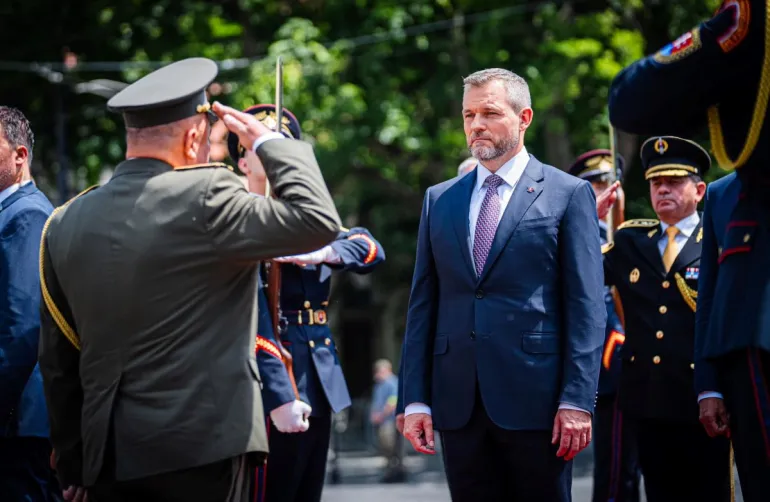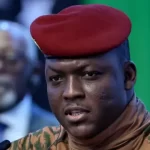New Slovak President Peter Pellegrini took the oath of office yesterday during a ceremonial meeting of parliament, sworn in by the head of the Constitutional Court.
Pellegrini is the first Slovak head of state who was previously prime minister and parliament speaker.
He is the sixth president since the establishment of independent Slovakia in 1993.
Apart from parliament and government members and former presidents, the ceremony in the Slovak Philharmonic in the centre of Bratislava was attended by diplomats and other invited guests, including former Czech president Milos Zeman and former Czech premier Andrej Babis, who both supported Pellegrini in the campaign before the Slovak presidential election. Babis was born in Bratislava.
The opposition Movement Slovakia of former prime minister Igor Matovic announced in advance that Its representatives would not attend the inauguration because of the invitation of a representative of the Russian embassy. Matovic’s movement has been a persistent critic of Russia over its military invasion of Ukraine.
In the direct presidential election in April, 48-year-old parliament speaker and Hlas-SD leader Pellegrini defeated diplomat Ivan Korcok. He replaced Zuzana Caputova, who did not defend her presidential post.
The presidential inauguration was accompanied by strict security measures; police deployed a large number of their officers and state security guards and installed mobile barriers around the Slovak Philharmonic building.
Pellegrini, who is the most popular Slovak politician according to opinion polls, waved to his supporters upon arrival at the ceremony.
On Monday, Pellegrini will travel to an informal EU summit where he will represent Prime Minister Robert Fico (Smer-SD) who is still recovering from gunshot wounds sustained during a shooting attack in mid-May.
During the presidential campaign, Pellegrini defended the Fico government’s decision to suspend military aid to Ukraine, which has been resisting a Russian military invasion for more than two years. He also opposed the Czech cabinet’s decision to suspend intergovernmental consultations with Slovakia in response to differences of opinion on some foreign policy issues. In February, Pellegrini, as Parliamentary Speaker, supported changes to the criminal law, which were criticised by outgoing President Caputova, the Slovak opposition and European institutions, and sparked a series of anti-government demonstrations in Slovakia.





